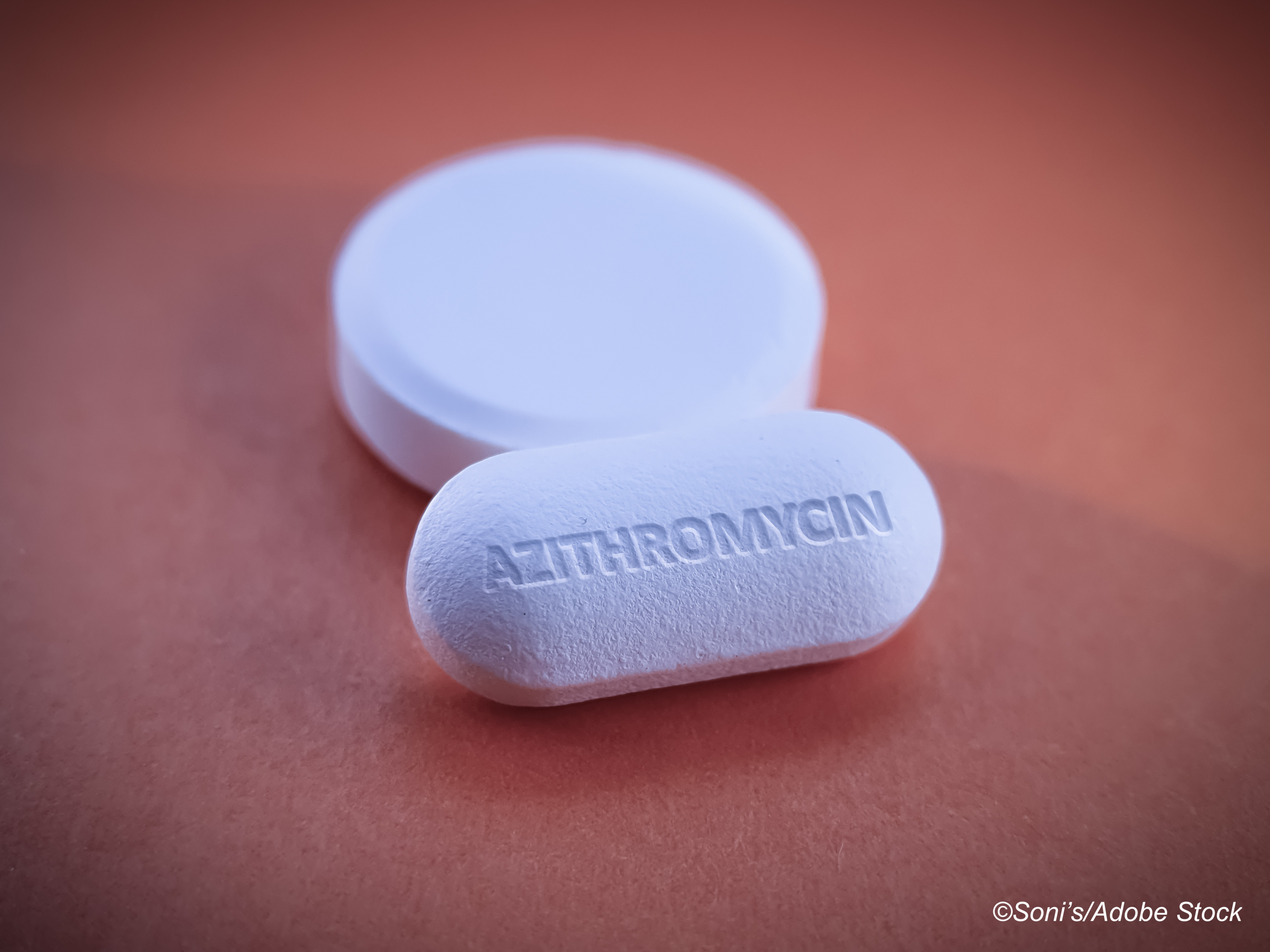
Adding azithromycin to standard-of-care treatment did not significantly decrease hospitalizations or death among patients with mild-to-moderate Covid-19 enrolled in the ATOMIC2 study.
The study failed to show a benefit for the antibiotic at a dosage of 500 milligrams daily for 14 days among patients in the United Kingdom presenting to emergency departments with suspected Covid-19 who were not considered sick enough for hospital admission.
Azithromycin is among the most widely studied drugs for the treatment of Covid-19, and most previously reported clinical trials also failed to show a reduction in respiratory illness, hospitalization, or death associated with its use.
This was shown in patients hospitalized with severe disease in the previously reported RECOVERY, COALITION 1, and COALITION 2 clinical trials, and among patients with early, symptomatic, mild-to-moderate disease in the PRINCIPLE and Q-PROTECT studies.
The PRINCIPLE trial compared three days of treatment with 500 mg azithromycin plus standard care to standard care alone in non-hospitalized patients with mild disease. In that study, no significant difference was shown in time to recovery or Covid-19 hospitalization among the two groups.
The latest study findings, along with the earlier trials, show “no evidence that azithromycin reduces hospital admission, respiratory failure, or death compared with standard care, either in early disease in the community, or those admitted to hospital with severe disease, or in those with moderate disease managed on an ambulatory pathway,” wrote ATOMIC2 researcher Timothy Hinks, MD, of the University of Oxford, Oxford, U.K., and colleagues, in The Lancet Respiratory Medicine.
Hinks and colleagues concluded that the findings “do not support the use of azithromycin in patients with mild-to-moderate Covid-19.”
However, in an accompanying commentary, Alejandro Rodriquez-Molinero, MD, PhD, of Consorci Sanitari del Garraf, Barcelona, Spain, wrote that most trials assessing the efficacy of azithromycin as a Covid-19 treatment “share a series of limitations imposed by the difficult emergency situation in which they were conducted, requiring a cautious interpretation of the absence of positive results for azithromycin.”
“…The ATOMIC2 adds much to our knowledge, but the body of evidence is not yet complete. There is still room for studies with power to demonstrate modest therapeutic effects, and for studies focused on other outcomes that are of great interest,” Rodriquez-Molinero wrote.
ATOMIC2 was designed as a prospective, multicenter, open-label, randomized superiority trial involving adults (≥18 years) presenting to hospital emergency departments who were considered not ill enough for hospitalization.
Participants (n=292) were randomly assigned (1:1) to azithromycin (500 mg once daily orally for 14 days) plus standard care or to standard care alone, with the primary outcome being death or hospital admission from any cause over the 28 days from randomization. Three patients withdrew from the study and requested that their data be removed.
The analysis included 145 patients treated with azithromycin and 147 in the standard care group (mean age, 46 years; 52% male; 68% White race; 32% Black and other minority ethnicity).
During 28-days of follow-up, 15 (10%) participants in the azithromycin group and 17 (12%) in the standard care group were admitted to hospital or died (adjusted OR, 0.91; 95% CI, 0.43-1.92: P=0.80). Two study participants (1%) in each treatment group required level 2 or 3 ventilation or died.
There was no evidence of cardiac events or other safety concerns associated with azithromycin therapy in the study, despite the high-dose, long-duration treatment protocol.
Several previous studies have raised concerns about an increase in cardiac events associated with azithromycin/hydroxychloroquine combination therapy.
“This analysis was performed in a population with a low baseline risk of cardiovascular death, and it should be noted that we excluded patients with a prolonged QT interval at baseline electrocardiogram,” Hicks and colleagues wrote.
ATOMIC2 study strengths included the “successful implementation at the interface between community and secondary care,” and the inclusion of an ethnically diverse population, wrote Hinks and colleagues.
Study limitations cited by the researchers included the necessary open-label design due to the “difficulties of obtaining appropriate placebos early in the pandemic,” and the reliance on clinical diagnosis of Covid-19 often without PCR confirmation. In addition, the researchers cited the relatively young age of the study participants “which reduces the proportion who are likely to have severe disease,” as a possible limitation.
-
Adding azithromycin to standard-of-care treatment did not significantly decrease hospitalizations or death among patients with mild-to-moderate Covid-19 in the ATOMIC2 study.
-
Azithromycin is among the most widely studied drugs for the treatment of Covid-19, and most previous clinical trials have also failed to show a reduction in respiratory illness, hospitalization, or death associated with its use.
Salynn Boyles, Contributing Writer, BreakingMED™
The ATOMIC2 trial was funded by the National Institute for Health Research Oxford Biomedical Research Centre, University of Oxford and Pfizer.
Researcher Timothy Hinks reported receiving grants from Pfizer, University of Oxford, the Wellcome Trust, The Guardians of the Beit Fellowship, and the National Institute for Health Research (NIHR) Oxford Biomedical Research Centre (BRC) during the conduct of the study; and personal fees from Astra Zeneca, TEVA, and Peer Voice, outside of the submitted work.
Commentary writerAlejandro Rodriguez-Molinero reported no relevant disclosures.
Cat ID: 190
Topic ID: 79,190,730,933,190,926,192,927,151,928,925,934


